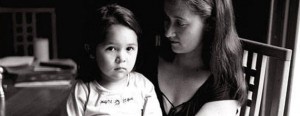
QUEZON CITY, Philippines – As the lead agency in social protection, the Department of Social Welfare and Development (DSWD) continues to support the amendments of Republic Act (RA) 8972 or the Solo Parents Welfare Act of 2000.
DSWD Secretary Corazon Juliano-Soliman expressed the Department’s full support to the substitute bill that seeks to amend RA 8972 to further help solo parents and their children.
“Solo parents are considered a vulnerable sector of our society. Since child rearing requires both parents, and doing it on your own makes it doubly difficult, hence, they must be given special protection,” Sec. Soliman stated.
Leaders of various solo parents associations (SPAs) nationwide are lobbying for additional proposed amendments, such as: allocation of one percent from the internal revenue allotment (IRA) of LGUs for programs/services benefiting solo parents and their children; creation of an office of solo parents in every province, city, and municipality; provision of full scholarship up to the tertiary level to at least one child of a solo parent; and equal access to employment and educational opportunities.
Since solo parents are the sole breadwinners of their families, the SPAs are also strongly recommending the reduction of taxes for solo parents, provision of PhilHealth cards for solo parents below the poverty line, free legal assistance, and increase the age of a solo parent’s dependent from 18 to 21 years old in view of the implementation of the K-12 curriculum of the Department of Education which adds additional years to basic education.
Meanwhile, the DSWD proposes the following: decrease the waiting period from one year to six months before a solo parent can be allowed to avail of benefits and clarify the category of any other person who solely provides parental care and support to a child or children, specifying if he/she is a legal guardian, adoptive parent, or licensed foster family.
The Department is also recommending the inclusion of the issuance of IDs to solo parents, creation of the Special Review Monitoring and Evaluation Committee, and imposition of penalties for non-compliance to the amended law and budget appropriation for its implementation.
Based on issues raised by solo parents over social media and various consultations being conducted by the DSWD in the regions, the sector is also lobbying for additional benefits.
“We need to come up with progressive policies and legislative measures focusing on the evolving nature of the Filipino family that will acknowledge, recognize and respect the existence of alternative families and varying compositions of the family,” Sec. Soliman stated.
“In addition, we need policies that must address the issues of discrimination being experienced by children of solo parents from private schools thereby depriving them of their right to a quality education,” Sec. Soliman emphasized.








Leave a Reply